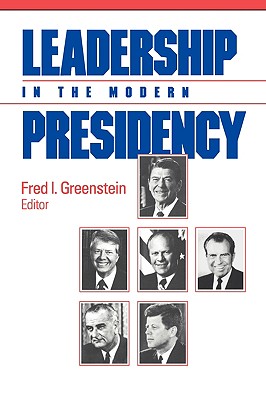"A lively collection. Leuchtenburg on FDR is the best thing going in short form. Muir on Reagan is sure to cause a controversy. Greenstein is helpful and original as usual. And there's still more " --Richard E. Neustadt
In this presidential year the leadership qualities of occupants of the Oval Office have become yardsticks for aspiring candidates. What profile of qualities, both positive and negative, helps explain the performance of chief executives? In this book about the White House, nine eminent political scientists and historians present their assessments of the leadership styles and organizational talents of presidents from Franklin D. Roosevelt to Ronald Reagan.
Filled with anecdote and insight, this is an unprecedented opportunity to observe how the running of the office of President has been changed, subtly and not so subtly, by the management and personal styles of the various incumbents within their historical contexts.
The book vividly depicts each president. There is Roosevelt, "a real artist in government"; Truman, a strong executive who always managed to appear weak; Eisenhower, who cultivated the image of being "above the fray" of politics but was actually fully occupied with getting political results; Kennedy, who successfully projected the symbolic grandeur of his office; Johnson, a figure from classical tragedy; Nixon, who preferred a corporate to a political mode of operation; Ford, who placed healing the nation's wounds from Vietnam and Watergate above his personal political future; Carter, whose fall was as stunning as his rise was meteoric. The chapter on Reagan, whose own last chapter as president cannot yet be written, is an impassioned encomium of the president as a folk philosopher that is bound to be controversial.
These accounts of leadership by modem presidents are acute studies of how the presidency has become the first among equals in our tripartite system of government. This book will be important to political scientists, historians, and government officials, and the liveliness of its presentation and the quotidian impact of the men it describes will make it attractive to everyone interested in how we are governed and who is doing the governing.










